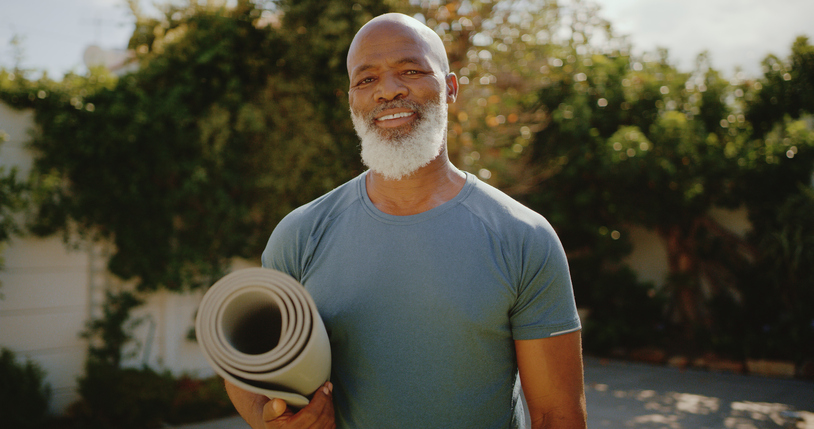
Whenever someone lives to be well to their 80's, 90's and beyond, the question that oftentimes comes up is, "what's the secret to living a long life."
You've probably asked it, or at least thought about it. What keeps these people living their life longer than anyone else? Some gems that 100+ year-olds have said have been, "staying calm", "eating real food", and even one person said, "a shot of whiskey every day."
But there's one key to a long life that some doctors swear by: staying out of the hospital.
Wait, what? You read that right. There is a growing number of doctors who believe that staying out of the hospital is key to living healthier and longer.
Take for example, some stats:
- Did you know that medical errors in hospitals account for three times more deaths than car accidents? — 100,000 deaths a year compared to 34,000.
- According to the U.S. Centers for Disease Control, each year, more than 1.7 million people get infections while they are in the hospital.
- 1 out of every 370 people admitted to a hospital dies due to medical errors.
- And if you happen to a patient in the ICU, you have a 1 in 3 chance of getting an infection you didn't have when you came in. You can read about this and other fun hospital facts in this shocking piece.
Dr. H. Gilbert Welch, a professor at Dartmouth Medical School has a good argument in his book Less Medicine, More Health: Seven Assumptions That Drive Too Much Medical Care.
He mentions that he's a little leary of the trend for people to wearable fitness tracking devices now, and the growing desire for folks to collect more and more data about their bodies. More information is not always a good thing if you don’t know how to hear the “signal through the noise.” It reminds me of something my grandmother used to say, "the more book smarts (knowledge) you have doesn't mean anything if you don't know how to use it."
It's like if you know there are so many deaths from car accidents a year, does that mean you should avoid getting in a car, or should it mean to be more cautious when you do? This can be the differentiating factor in determining the false alarms from the real ones.

This about it this way: Every time you go to the doctor, you will be recommended (actually, pretty much ordered to undergo a plethora of tests and ‘services’, where your blood is tested, blood pressure taken, cholesterol measured, and dozens of other procedures that may or may not help you. Some could even begin to make you dependent on them.
“I think we need to get back to some very basic questions about, you know, how are you feeling?" writes Welch. "How are you actually doing? How do you actually function? And be wary about the widespread collection of data on individuals and trying to make some predictions about the future.”
The underlying reason behind Welch's theory is the need for people to go back to quality vs. quantity. He thinks health care shouldn’t be about “avoiding death” or even prolonging patients’ life, but more about helping them live the kind of life they want to live.
There's another argument against seeing your doctor too frequently: Many primary-care doctors order too many totally unnecessary procedures during annual exams, including screenings and tests that require more patients’ time and our health care dollars.
A 2009 study showed that, for many cancer screening tests, a patient who undergoes 14 screenings has more than a 50 percent chance of a false positive.
So what can we do now?
Start being accountable for your own health. No one can do this for you. You must move. A lot. Any daily movement is great. Walking 10,000 steps is great. But if want to bring it up a notch to optimize? Add little 30 second sprints to any exercise outing. Here's a rule of thumb about how fast sprints should feel: make sure you break into a sweat and the thought of doing it more than 30 seconds makes you want to die.
Exercise daily, and no marathon sessions of ‘cardio’, just short bursts of what I call Perfectly Paleo Exercise. Strength building, stretching, and getting out in the natural world- these things build true strength, health, and fitness. Gyms are another place to avoid- do it yourself, at home and outside.
You really may not need yearly physicals unless you have underlying health conditions. Nearly 80% of all chronic diseases can be combated by proper diet or exercise.
You may not need to see the doctor for colds, or a stomach flu, or a fever that lasts less than one week either. Besides cancer screenings, there's really nothing you'll get out of your yearly physical that you can't do yourself. Save yourself some money and time and take care of your body yourself. If you're exercising with sprints, eating a healthy diet low in sugar, and generally feeling good, then checking in with the doctor every few years is quite adequate.









